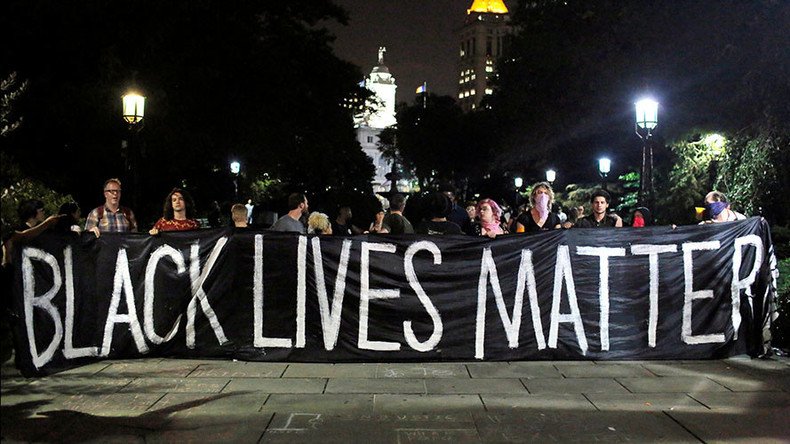Ministers reject #BlackLivesMatter support for Israeli boycott, forgetting civil rights history

African-American clergy in the US state of Missouri have rejected #BlackLivesMatter support for the BDS movement against Israeli ‘apartheid,’ forgetting about the pivotal role played by economic boycotts in the global civil rights struggle.
The letter was written by Bishop Lawrence M Wooten, president of the Ecumenical Leadership Council of St Louis, a group of black clergy members serving communities near the suburb of Ferguson where the BLM movement emerged following racial rebellion against police violence.
Citing Philando Castile as the “123rd unarmed black male fatally shot this year,” Bishop Wooten started by acknowledging the vital role BLM plays in addressing police brutality, but then attacked the movement’s solidarity for Palestinians in its call to end US aid to Israel.
46 arrested at #PhilandoCastile protest against police killings in Minnesota https://t.co/nzZaYy6BbNpic.twitter.com/GUoTmK2zuC
— RT America (@RT_America) July 27, 2016
“Their argument is that Israel is an apartheid state perpetrating genocide against the Palestinians,” the letter reads, going on to reject, “without hesitation any notion or assertion that Israel operates as an apartheid country.”
Life in Israel and the occupied Palestinian Territories has been compared to apartheid in South Africa, given the restricted movement of Palestinians and vital resources, the expansion of illegal settlements, and the ‘apartheid wall’ separating the occupied West Bank from Israel for 280 miles, a structure which was ruled illegal by the International Court of Justice in 2004.
#Netanyahu policies may turn Israel into apartheid state – former Israeli PM https://t.co/CVeWjvvzJA
— Tolgek Krann (@Tolgek) June 17, 2016
“We embrace our Jewish brethren in America and respect Israel as a Jewish state. Jewish-Americans have worked with African-Americans during the civil rights era when others refused us service at the counter — and worse,” Wooten wrote, blurring the lines between those of the Jewish faith who practice liberation theology with the right-wing 'war hawks' in the Israeli government, a common tactic by anti-BDS critics.
“Anyone who studies American history will no doubt find the names Michael Schwerner, James Chaney and Andrew Goodman, two Jews and an African-American, who lost their lives trying to provide civil rights for blacks in the south. We cannot forget their noble sacrifices. Neither should Black Lives Matter,” concludes the letter.
#Israel boycott: 33% of Americans, 40% of Brits in favor, Israeli UN ambassador cries foul https://t.co/TIfNLOXyOcpic.twitter.com/Oit4x9eLfa
— RT (@RT_com) June 1, 2016
'Anyone who studies American history,' and world history, know how economic boycotts against national governments can create revolutions.
Inspired by Gandhi's Salt March, and inspiring the global movement against South African apartheid, Dr Martin Luther King, Rosa Parks, and black clergy across the US got behind the Montgomery Bus Boycott to fight the apartheid-like system of segregation.
Dr King’s final speech in Memphis before he was assassinated called for a boycott of Wonder Bread and Coca-Cola in solidarity with the sanitation workers.
Today’s BLM activists recognize that legacy and support the BDS movement, understanding that police brutality against Americans of color and violence perpetrated by Israeli Defense Forces soldiers, settlement vigilantes, or corporate security, bear striking similarities. Both receive funding from the US government.
The US and Israel are currently negotiating a new 10-year Memorandum of Understanding that would lock in $3.7 billion for Israel from the US every year, in addition to the lucrative missile defense funding.












